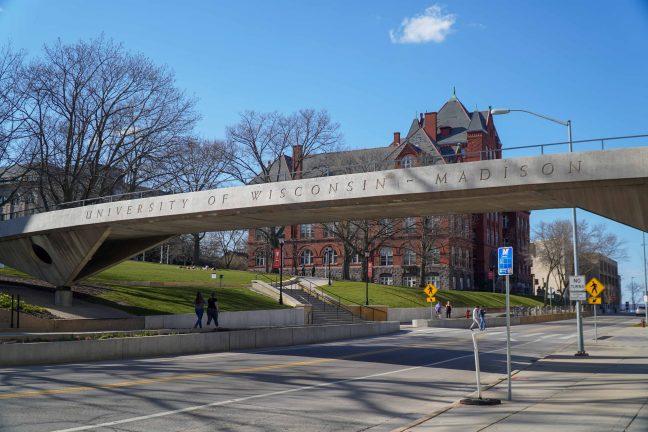Chancellor Rebecca Blank released a new employee furlough policy to help University of Wisconsin recover from the economic losses of the COVID-19 pandemic.
Blank said in a statement yesterday the state announced all executive branch agencies, including UW, must cut 5% of their state tax dollar funding yet this fiscal year.
“Given the expected financial challenges, however, we must take additional steps that, unfortunately, will have a direct impact on all of our employees,” Blank said in the statement. “We will face this challenge as a community, asking for shared sacrifice among faculty, academic and university staff, while expecting the largest contributions from our leadership and highest earners.”
Blank said UW faced the crisis from a relatively strong financial place and before allocating new budget dollars for FY21. Using this money, the university’s limited reserves and cost-control actions, UW can work to confront the estimated $100 million economic shortfalls, Blank said.
The university will tackle the economic hurdle through a series of campus-wide furloughs and leadership pay cuts, instituting a work-share program and voluntary leave without pay, Blank said.
“These short-term HR actions will save us up to $30 million toward the $100 million-plus shortfall we are currently facing,” Blank said.
According to Blank, until the fall, UW does not anticipate any further actions or cuts, but the university still faces significant uncertainty about the future.
The UW United Faculty and Academic Staff released a statement arguing the Board of Regents’ authorization of furloughs to combat budget shortfalls has resulted in a small group of stakeholders determining one-sided policies.
“We call for a democratic, equitable and comprehensive response to the COVID-19 crisis. We demand the same from our administrators, from our Board of Regents and from our state government,” UW United Faculty and Academic Staff said.
University Communications Director Meredith McGlone said in an email to The Badger Herald it is important to note the furlough is designed so that campus leaders and the highest-earning employees bear the largest reductions in pay.
McGlone said, over the summer, employee benefits such as health insurance will continue while workers are on furlough. Other workers with more substantially reduced hours — through the work-share or a more extended furlough — are also eligible for unemployment benefits.
“We expect that [UW furloughs and budget cuts] will help the university maintain a sound financial footing until the outbreak ends,” McGlone said.


